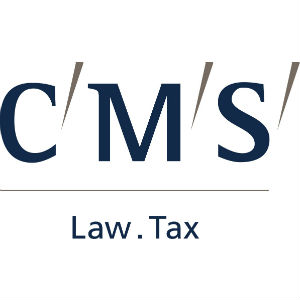Europe continues to be a sellers’ market. All countries across Europe now apply “seller-friendly” risk allocation techniques, while the US continues to firmly favour the buyer.
These conclusions were published by CMS today in the 12th edition of its annual European M&A Study, a multi-year analysis of the key legal provisions within M&A agreements. The study is the most comprehensive of its kind and is based on a proprietary database comprising more than 4,600 deals.
In identifying the primary deal drivers for transactions, CMS revealed that almost half of deals represented buyers entering a new market (46%) or acquisitions of know-how or acqui-hire transactions (41%). The proportion of these transactions both increased since 2018 (32% and 23% respectively). One fifth of the deals represented the acquisition of a competitor.
Stefan Brunnschweiler, Head of the CMS Corporate/M&A Group, said: “We are seeing demand for deal certainty in the unpredictable macroeconomic context, greater use of clever risk allocation strategies, as well as new cutting-edge technologies benefitting the industry.
The M&A Study 2020 will be a useful guide for those considering transactions in a more and more challenging investment climate.”
Key findings for 2019 include:
- Upward trend of legal technology tools – AI and document automation were used in numerous of the reviewed transactions, often leading to significant cost savings.
- Rise in popularity of Warranty & Indemnity (W&I) insurance – up by 2% to 19% of all deals but used in almost half of deals valued over EUR 100m.
- Gradual decline of purchase price adjustments (PPAs) – in 45% of all deals, up one-percentage point from the previous year, but significantly behind the average level for the previous three years.
- Upward trend of locked box structures continues – in 56% of deals with no PPA, highlighting parties’ wish for as much certainty as possible.
- de minimis and basket provisions becoming the market norm – now applying in majority (73% and 66% respectively) of transactions, most likely reflecting the increasing use of W&I insurance.
- Liability caps determined by deal size and W&I insurance – overall cap in smaller deals most likely to be full purchase price, compared to only 10-25% for larger deals. Additionally, almost half (45%) of W&I deals have caps of less than 10% of the purchase price, compared to only 10% of non-W&I deals.
Regional differences
The US approach to risk allocation continues to favour buyers. While PPAs remained at 45% in Europe, they featured in 95% of all US deals.
The UK has the highest proportion of W&I insurance (37%) which means lower liability caps and shorter limitation periods for those deals. Limitation periods are longest in CEE and France, and liability caps are highest in the Germanic and Benelux regions.
CEE also leads in the use of MAC clauses, an increase of 7% this year, compared to the European average of 16%.
PPAs remain unpopular in Germanic-speaking countries, being used in 37% of deals, less than the European average of 45%. They are least applied in France however, which stands at 28%. Earn-outs were least used by CEE and France, which included them in only 8% of transactions, compared to the European average of 21%.
Locked boxes were unusual in Southern Europe, with only 36% of transactions without a PPA using this structure, far behind the European average of 56%. The concept of data room disclosure has not become widely adopted there either, with only 27% of transactions reflecting such a provision compared with over 50% for Benelux, CEE, Germanic and UK deals.
For more information: [www.cms.law/int/M-A-Study-2020]
– END –
Press contact:
Philipp Wilisch
+49-69-71701-508
philipp.wilisch@cmslegal.com
About the Report:
The CMS European M&A Study 2020 provides insight into the legal provisions of merger & acquisition agreements, makes comparisons across Europe and with the US, and identifies market trends. CMS analysed private M&A agreements relating to both non-listed public and private companies in Europe for the thirteen-year period 2007 – 2019. Of the 4,609 CMS transactions we analysed, 466 relate to 2019 and 3,383 relate to the period 2010 – 2018.
About CMS
Founded in 1999, CMS is a full-service top 10 international law firm, based on the number of lawyers (Am Law 2018 Global 100). With 70+ offices in 40+ countries across the world, employing over 4,800 lawyers, CMS has longstanding expertise both at advising in its local jurisdictions and across borders. CMS acts for a large number of Fortune 500 companies and the FT European 500 and for the majority of the DAX 30. Revenues totalled EUR 1.36bn in 2018.
CMS provides a wide range of expertise across 19 expert practice and sector areas, including Corporate/M&A, Energy, Funds, Lifesciences, TMC, Tax, Banking and Finance, Commercial, Competition & EU, Dispute Resolution, Employment & Pensions, Intellectual Property and Real Estate & Construction.
For more information, please visit cms.law

